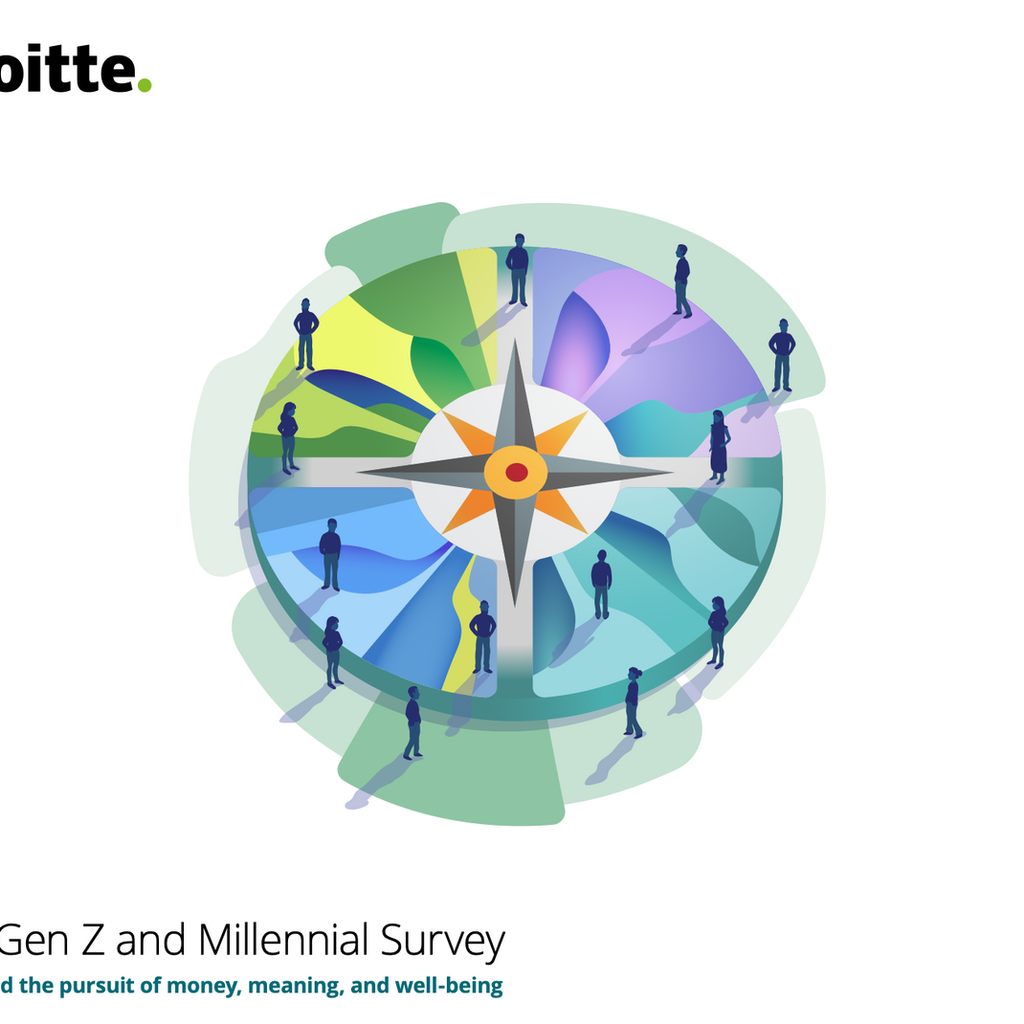What Deloitte's 2025 Gen Z & Millennial Survey Tells Us About the Future of Work (and Where AI Fits In)

TL;DR
💼 2. Flexibility isn’t just a “nice to have”, it’s expected Three in four Gen Zs and Millennials prefer hybrid or remote work.

💼 2. Flexibility isn’t just a “nice to have”, it’s expected Three in four Gen Zs and Millennials prefer hybrid or remote work.
This week I decided to make time to read Deloitte’s Gen Z & Millennial Survey, not just because it’s a good pulse check, but because these are the generations shaping the future of work right now. And as a Millennial myself, who teaches and implements AI for real businesses with a growing number of Gen Z workers, the 2025 edition was especially interesting.
Here’s what stood out to me and what it means for businesses, educators, and anyone trying to build a workplace that works in the age of AI.
According to the survey, nearly half of Gen Zs (46%) and 39% of millennials feel stressed all or most of the time. Top drivers? Finances, workload, and job insecurity.
AI can’t fix burnout on its own. But what it can do is help reduce the mindless admin work, chaotic inboxes, and late-night spreadsheet marathons that fuel it.
As someone working with businesses of all sizes, I see this over and over: people don’t need robots to take over their jobs - they need relief from the 30% of their job that feels like busywork. Tools like ChatGPT, Notion AI, and even simple but well-set-up automations in Google Sheets, for example, can meaningfully reduce workload stress when implemented with consideration and intention.
Three in four Gen Zs and Millennials prefer hybrid or remote work. Not shocking, but this is where AI enters the chat.
AI tools are rapidly reshaping what asynchronous work can look like. From auto-summarizing meetings to generating progress reports or client updates, we’re entering a new era where work doesn’t have to be bound by meetings, time zones, or “quick updates” that eat half your day.
If you’re a business leader trying to retain talent, investing in AI systems that support async workflows isn’t just smart, it’s retention strategy.
Gen Z and Millennials want their employers to take action on climate change, mental health, and DEI and they’re watching it all closely. This has not changed much.
This matters for AI adoption too. AI systems aren’t neutral. If you’re deploying tools without understanding how bias, transparency, or data consumption intersect with ethics and climate change, you’re likely to lose trust with the very people you’re trying to retain.
It’s one reason I always build ethics into the workshops I teach, not as a side note, but as a central thread.
While the survey didn’t focus entirely on AI, one thing is clear: these generations are aware of the shifts happening and want to be empowered, not displaced.
This is where education matters.
In my “AI Fundamentals” workshops I’ve seen how a single session can flip the switch from fear to curiosity. Most people don’t want to become AI engineers, they just want to stop feeling behind and feel confident in how to use it.
If you’re leading a team or running a business, giving your people the skills and vocabulary to work with AI, not against it, might be one of the most empowering things you can do this year.
Other interesting stats from the surveys in relation to AI:
57% of Gen Zs and 56% of millennials are using GenAI in their daily work.
Top use cases include: data analysis, content creation, strategy development, training materials, and project management.
A growing percentage are using it “all or most of the time.
This aligns closely with what I’ve seen in my workshops: once people get a handle on how to use AI tools like ChatGPT, Gemini, or Notion AI, etc, they don’t stop. They just need someone to connect the dots and show what’s possible in order to spark the creativity!
Even among respondents who hadn’t used GenAI yet, nearly 75% believe it will impact their work within the year. That’s an incredible signal for any employer or educator.
Despite the excitement, 63% worry AI will reduce job opportunities.
Some mention already looking for careers that feel “safe” from AI disruption, like trades or hands-on work.
Nearly 40% of respondents say they plan to upskill in Artificial Intelligence within the next 12 months.
So what does this mean for you, your team, or your company?
It means now is the time to stop treating AI training like a bonus perk and start treating it as core career development.
It also means training shouldn’t just be about how to use tools. It should also address:
Navigating AI’s impact on job roles and responsibilities
Balancing technical and soft skills (the report emphasizes empathy and leadership are still critical)
Making ethical decisions around automation and bias
One thing these generations have in common is they don't want a ping pong table or pizza parties. They want growth, purpose, and employers that respect their time.
The companies that will thrive are the ones that stop seeing AI as a threat or a gimmick, and start investing in real, human-centered upskilling.
If you’re not sure where to start, that’s what I’m here for!
🔗 Want to bring an AI workshop to your team?
Let’s make it real: https://calendly.com/elevateaiconsulting
